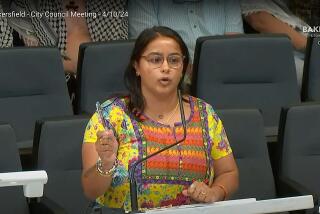Should we kill this Crip?
THERE ARE heartfelt moral and religious reasons to oppose capital punishment, but holding up Stanley Tookie Williams as a symbol of redemption is absurd and obscene.
It is especially offensive to his victims’ families, whose names the celebrities championing his cause probably don’t know. News coverage rarely mentions Albert Owens or the Yang family, all gunned down by Williams in a series of crimes in 1979. The Crips’ reputed co-founder also bears moral responsibility for the deaths of countless young black men.
Williams told the BBC in a 2003 interview that his imprisonment is the result of “bad karma.” He is more right than he probably intended. Karma is the consequence of choices freely made. Williams chose death for a lot of people, without justice, without appeal, without consideration of anything other than his totalitarian goals.
Stripped of his celebrity, Williams isn’t much different from the more than 600 men on California’s death row. He killed multiple victims, he has never taken responsibility for his crimes, and he has had decades to fight his death sentence.
Not only did he brag to his brother about the dying anguish of Owens, but after slaughtering the Yang family, he boasted to fellow gang members he had killed “some buddhaheads.” His true distinction comes only in his possibly being the second African American among the 12 people the state of California has executed in the last 35 years.
According to a Gallup poll in May, nearly 75% of Americans support capital punishment for murderers. There are some murderers so heinous and so evil that removing them is the measure of the severity of their violation of the social contract. Williams qualifies.
Religious, artistic and academic elites that most vociferously oppose capital punishment are the least affected by violent crime. They invariably avoid discussion of the toll homicide takes on victims, their survivors and the communities hardest hit by murder -- people of color and the poor. A black man in the United States is seven times more likely to be a victim of homicide than a white man.
So what makes Williams deserving of the extraordinary benefit of commutation? We are asked to believe that because he has coauthored some children’s books he has “reformed.” Yet he refuses to do what we morally and legally expect even from shoplifters: to express remorse for his actions. His true legacy may lie with his children. His namesake, Stanley Williams Jr., is doing time in another California prison for second-degree murder.
Williams claims he discourages kids from getting involved in gang life, yet a San Quentin official recently suggested that he still orchestrates gang activity outside the prison, according to an Associated Press story.
In his 2004 memoir, he refused to back off the code against “snitching,” in which identifying a drive-by shooter is considered a worse sin than shooting a 4-year-old in the head with a Tech-9.
The clamor for Williams’ clemency may persuade Gov. Arnold Schwarzenegger to dispense mercy to him, something Williams never gave Owens, the Yangs or any of the thousands of people the Crips have killed, maimed or terrorized.
But clemency for Williams will not advance serious discussion of the merits of capital punishment. Nor will it succeed in silencing the distant voices of the victims who never make the headlines except as a footnote to the saga of a gang lord adopted by the glitterati.
Williams’ case recalls that of Norman Mailer and his friends, who “adopted” killer/writer Jack Henry Abbott. After Mailer and others secured his release from prison, Abbott stabbed and killed a young aspiring actor.
If his sentence is commuted, Williams will be an even shinier icon to the thugs who follow his example into violence and incarceration. He will roam in the general prison population, while his disciples stalk California’s streets and malls.
More to Read
Start your day right
Sign up for Essential California for news, features and recommendations from the L.A. Times and beyond in your inbox six days a week.
You may occasionally receive promotional content from the Los Angeles Times.






